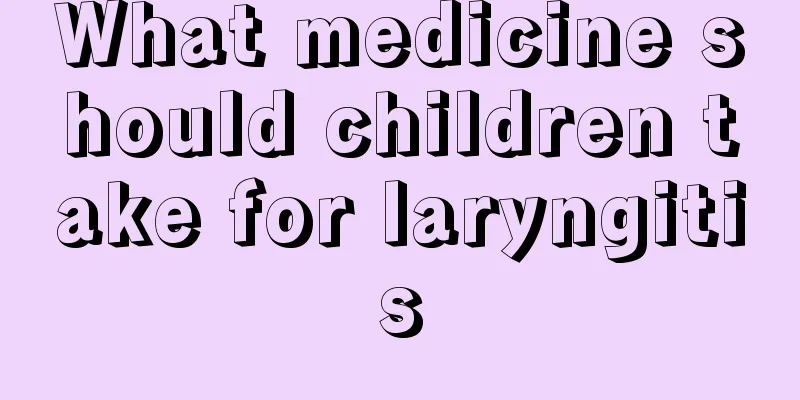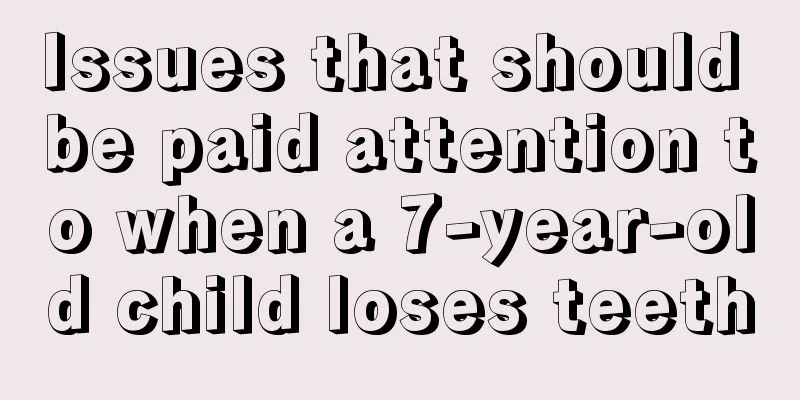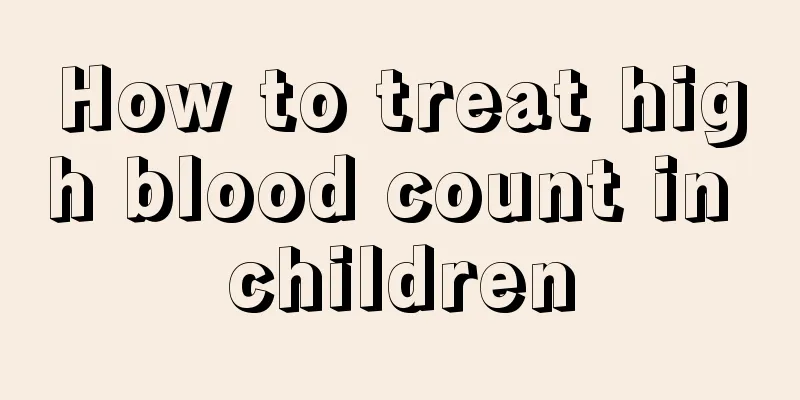What medicine should children take for laryngitis

|
Pediatric laryngitis is one of the common throat diseases in children. This symptom can be divided into acute laryngitis and chronic laryngitis. The symptoms of pediatric laryngitis are similar to those of a cold in the early stages, with symptoms of coughing. However, as the laryngitis worsens, and because children's airways are relatively thin, their throats may swell, and they may even make a breaking cough. This has a great impact on children's diet and sleep. Inconvenient eating will lead to insufficient nutrition intake, which is not conducive to their physical development. Poor sleep has a greater impact on children's mental state. Therefore, laryngitis in children should be treated promptly. Let me introduce what medicine to take for children's laryngitis? Condition Analysis: Most cases of acute laryngitis in children are caused by bacterial or viral infections. The initial symptoms are very similar to those of a cold, with fever and cough. When the inflammation spreads and invades the larynx, because the child's airway and laryngeal cavity are relatively narrow, once the mucosa and submucosal tissue swell due to inflammation, it will cause glottal stenosis and even laryngeal spasm, clinically resulting in a cough like a bamboo breaking sound. Guidance: Don't abuse antibiotics. If there are no complications such as otitis media or pneumonia, antibiotics are not recommended. You can take some Chinese medicine such as Isatis root, Yinqiao, etc.; and antiviral drugs in Western medicine, such as ribavirin. To prevent the occurrence of acute laryngitis in children, parents should pay attention to keeping their children warm in late autumn and let them do more outdoor activities to strengthen their physical fitness and improve their resistance to disease. Children with weaker constitutions can take some nutritional supplements to enhance their resistance. Open windows and doors frequently to keep the indoor air fresh. If a child is found to have upper respiratory tract inflammation such as influenza, timely diagnosis and treatment should be sought. Children with symptoms of acute laryngitis should be promptly diagnosed and treated, and their condition should be monitored at all times. Laryngitis is an inflammation of the larynx that can be caused by infection or excessive speech. It often recovers quickly if the larynx is given adequate rest for a few days. Guidance: Laryngitis is not usually serious and heals well if you allow your throat to rest. Try to persuade your child to speak as little as possible and in a low voice. Plenty of warm water, such as sweetened lemon juice and hot water or fruit drinks diluted with hot water, can relieve sore throats. Sprinkling hot water indoors and replacing it when it freezes to maintain a humid environment indoors can also help relieve sore throats. Covering your child's head with a towel and placing a bowl of hot water under the head and inhaling the steam may also provide relief. Traditional treatments such as eucalyptus oil have been shown to be effective in relieving laryngitis symptoms. If laryngitis persists for more than a week, you should see a doctor to determine whether antibiotics should be used. If attacks occur frequently or last a long time, you should see a doctor to determine the cause. Pediatric laryngitis is completely preventable and treatable. First, when the seasons change, pay attention to adding or removing clothes for children in time, and cover them with quilts at night to prevent them from catching cold. At the same time, we should focus on improving children's physical resistance and cold resistance. Even in winter, we should let children play outdoors more and exercise more. Secondly, we should strengthen children's nutrition, eliminate partial eating, so as to avoid "malnutrition", and develop good eating, hygiene and living habits. Finally, it is also extremely important to maintain appropriate indoor temperature and temperature, and open windows frequently to replace fresh air. If a child has acute laryngitis, he should seek medical treatment in time, and never take chances and treat himself at home, so as not to delay the disease and cause serious consequences. Condition analysis: 1. Local treatment can be done with ultrashort wave therapy and atomization inhalation. 2. Hormones can be used to reduce the swelling of the vocal cords as much as possible. This is especially important for people who use their voice as a profession. Guidance: 3. Acute laryngitis in children can cause breathing difficulties, so special attention should be paid. Don't take it lightly. Hospitalization for observation is generally recommended. Condition analysis: 1. Take adequate rest. 2. Patients should avoid eating irritating foods and talk less to help the inflammation subside. Guidance: 3. Local treatment can use ultrashort wave therapy and nebulization inhalation. 4. Hormones can be used to reduce the swelling of the vocal cords as much as possible. This is especially important for people who use their voice as a profession. 5. Acute laryngitis in children can cause breathing difficulties, so special attention should be paid. Don't take it lightly. Hospitalization for observation is generally recommended. |
<<: What causes gum pain in children?
>>: What medicine should children take for pharyngitis and cough
Recommend
Newborn vomits green liquid
If a newborn vomits green liquid, it may be due t...
What is the cause of white spots on the baby's belly?
If the baby has white spots on his belly, parents...
Can anemia in children be cured?
Because many children are suffering from anemia r...
Strabismus surgery for children
When we look at something, our eyes look straight...
How to deal with foreign matter in baby's eyes
Eyes are the windows to the soul. For every newbo...
The incubation period of hand, foot and mouth disease, remember this knowledge!
Hand, foot and mouth disease will not show sympto...
There is a birthmark on the baby's forehead. Here is the best way to treat it.
Many people have birthmarks on their bodies. Most...
What should I do if my child lies? Parents, please look here
Many parents are particularly averse to their chi...
Do you know what consequences does premature closure of the fontanelle have?
Because the skull of every newborn is not fully d...
How to make bubble water to blow a lot of bubbles
Bubble water is one of many people's favorite...
Why does my child always vomit?
What parents worry about most is their children. ...
What should we pay attention to when children have mesenteric lymphadenitis?
A baby is the future and hope of a family. Every ...
How should congenital heart disease in children be treated best?
Congenital heart disease is a kind of congenital ...
Treatment for neck pain in children
For many children, the younger they are, the weak...
Why do babies move their hands and feet when feeding?
Some babies always move their hands and feet arou...









